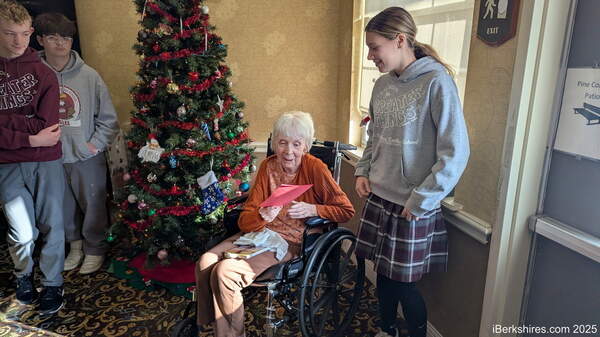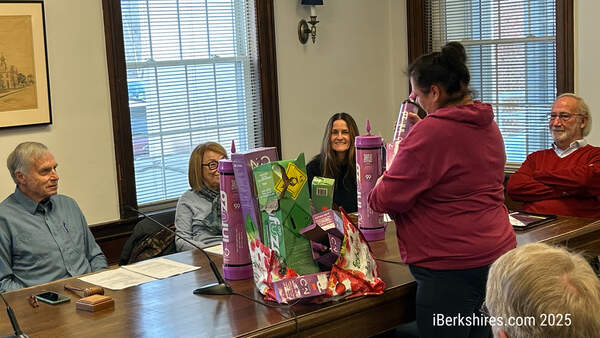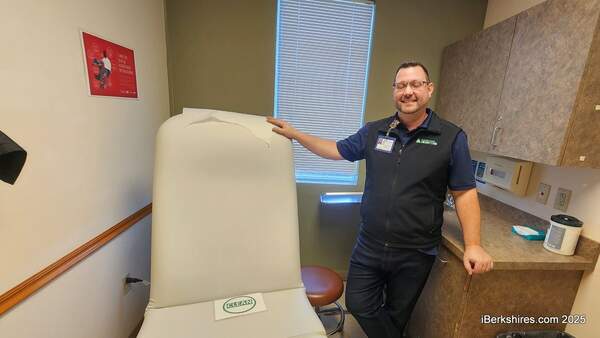Local Women Find Motherhood Through Adoption
 |
Carrie Waara had only a photo to go by to decide on whether to adopt her daughter, Sarah (Taiyuan). She and her husband, Scott Wong, flew to China nearly 20 years ago to meet their baby at a hotel.
"I was getting out of the elevator, when I saw two women holding babies. I asked the woman holding a baby that had hair like the baby in the photo we had received if it was Taiyuan," said Waara. "She replied 'yes,' and I said 'I'm her mother.' It was a thrill!"
Waiting for Taiyuan was a little green-painted crib that her parents had found in their hotel room. "How I loved that crib," said Waara. "And there was a bright red pillow with a dragon face on each end of it. Sarah still has it."
Just a month later, Waara would gather with several other new mothers for brunch on Mother's Day. "We were all so thrilled to be mothers," she said. "We lined up our babies on a couch."
Waara and Wong turned to adoption because they couldn't have children. Infertility would also send Kathy and David Chesney and Patricia and Sidney Anderson to look into adoption. The three couples met and became friends through the Open Door Society, now known as ACONE, Adoption Community of New England.
The Andersons were married 13 years before they eventurally turned to adoption.
"We looked into Cambodia adoption and were about to send an application when the United States shut down adoptions from Cambodia," said Anderson. At that time, there were substantiated reports of corruption in the Cambodian adoption system.
She replied 'yes,' and I said 'I'm her mother.'
|
But they found the conditions at orphanages in China troublesome. One they visted had 15-20 babies in a room, five in a crib.
They would adopt 17-month-old Chloe in 1995 and about six years later Hallie, at the age of 2. Both, said Anderson, were delayed in their development.
"I think in her time in the orphanage she didn't get much care," she said of Chloe, who was only 17 pounds and couldn't walk yet. "I have a photo of her sitting in a chair with her legs bound."
Anderson believed that Hallie must have received more attention as she was she about average size for her age, and had some skills. "Her one word was da, which in Chinese means hit," said Anderson.
Both children have thrived. Chloe, now 17, loves sports and the outdoors while Hallie, 11, is into music and arts.
"It's a blessing for them and for us. We we became a family." said Anderson.
The Andersons have been making sure the girls are knowledgable about their heritage by arranging a tutor to give them lessons in the Chinese language and culture.
For Waara and Wong, adopting from China seemed natural. Wong, a Chinese-American, is a professor of history and public affairs at Williams College; Waara speaks Chinese and is a professor of Asian history at Castleton (Vt.) State College.
It's a blessing for them and for us. We we became a family. |
Wong, in fact, was in Hawaii interviewing World War II veterans for his book "American's First: Chinese-Americans and Second World War" when they received a letter saying a child had been found for them, with the picture of Sarah. It was just nine months after they had gone to an adoption agency.
Now 17 years later, Sarah is a student at Mount Greylock High School, and her mother still says, "adopting Sarah is the best thing we ever did."
It took more than nine months for Kathy Chesney of Pownal, Vt., to meet her daughter, Kristina.
Raised in New York, she volunteered in an orphanage during high school. "We would take the 4-year-old children on a bus to the zoo or on field trips ... I decided that someday I would adopt," she said. "I thought I would have biological children, but I wanted to adopt, too."
It was while undergoing fertility treatments that idea of adoption really hit home when she came upon this question in the reading material: "Do you want to have a baby or be a parent?"
"It was an important question to me because it allowed me to decide when I'd had enough with the infertility treatments," Chesney said. "Being a mom was what mattered most to me."
She and her husband looked into U.S. adoption but didn't like the process adoptive parents had to go through. They decided to turn to their first preference of adopting internationally.
First, they tried to adopt in Chili, but "nothing happened," said Chesney. "The lawyer we had was from Brazil and Dave had spent time in Brazil, so we decided to adopt there ... It took about three to four years from the time we decided to adopt to the time we got our babies."
There was no way
we were going to give her up.
|
"He thought she might not live beyond age 2. Our lawyer said we did not have to take her — she would find us another child," Chesney said. "We reacted like the lawyer was out of her mind! Kristina was our child, we bonded with her immediately and there was no way we were going to give her up."
As it turned out, Kristina's condition cleared up with treatment here in the United States and when the couple returned to Brazil for the couple months required bond to bond with Alana, Kristina went with them. "She was excited about getting a baby sister," Chesney recalled.
ACONE-related gatherings at St. Stephen's Episcopal Church in Pittsfield gave the "children an opportunity to be with other kids that were adopted and gave parents support," said Chesney.
Adoptive parents could also give each other guidance on how to deal with reactions and questions from curious strangers. But they're still getting the message of family out to the world at large.
"Teachers send children home with the assignment 'Trace Your Family Tree.' They need to be more sensitive to adopted children," said Waara. "We donated books to the school library about adoption and adopted children. Adoption is all about family and different ways of creating a family."
Tags: adoption, family, mother's day,















